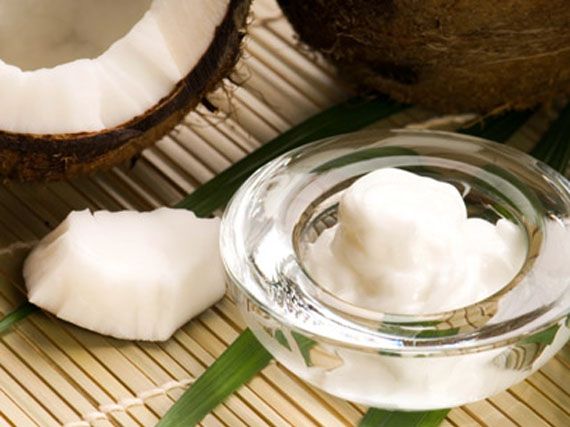
Photo Credit: Istockphoto/ThinkStock/SkinnyChef.com
The Skinny Chef explores the health pros and cons of this new-wave vegetable oil
Long a cornerstone to ayurvedic medicine and revered by tropical civilizations, coconut oil has a surprisingly long history in food and medicine throughout the world.
In folk medicine, coconut oil is said to have antibacterial properties, help cleanse the urinary tract, help heal wounds, prevent scars, aid a healthy complexion, and even enable an increased metabolism. However, in various health circles, the oil has been somewhat controversial when it comes to recent health and medical studies.
 Coconut oil is pressed from the meat of a mature coconut and gets a bad rap because it is high in saturated fat, but the composition of its fat is unlike any other fat. Coconut oil is comprised primarily of medium-length-chain fatty acids and triglycerides, whereas the vast majority of fats that humans consume contain long-chain fatty acids. While the medium-length triglycerides are primarily saturated fats, due to the size of the molecules, the human body digests them differently than your typical saturated fats. This is why coconut oil is not considered to be a "bad fat" by some of its ardent supporters.
Coconut oil is pressed from the meat of a mature coconut and gets a bad rap because it is high in saturated fat, but the composition of its fat is unlike any other fat. Coconut oil is comprised primarily of medium-length-chain fatty acids and triglycerides, whereas the vast majority of fats that humans consume contain long-chain fatty acids. While the medium-length triglycerides are primarily saturated fats, due to the size of the molecules, the human body digests them differently than your typical saturated fats. This is why coconut oil is not considered to be a "bad fat" by some of its ardent supporters.
However, most medical doctors and nutritionists still say that coconut oil can raise blood cholesterol. Remember that when it comes to calories, coconut oil is still a fat — it has almost twice the number of calories than a carbohydrate or protein. Up-to-date health studies still maintain that people should limit all fats, especially saturated kinds like coconut oil, in order to prevent type 2 diabetes.
As a trained chef, author and health expert, Jennifer Iserloh has created thousands of delicious recipes, articles, and blogs posts for TV, print and web publications — including The Today Show, Living Well With Montel, SELF, Prevention, In Style, People, First For Women, AOL KitchenDaily, and LiveStrong. Follow her healthy cooking advice at SkinnyChef.com.














